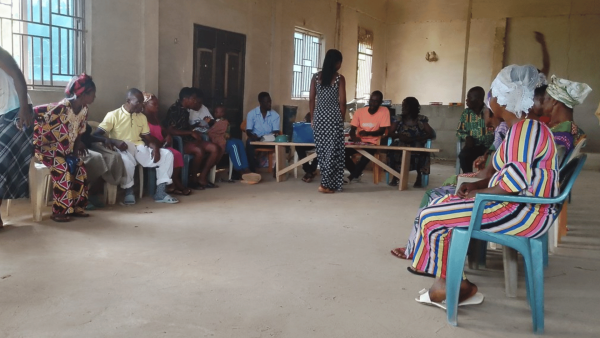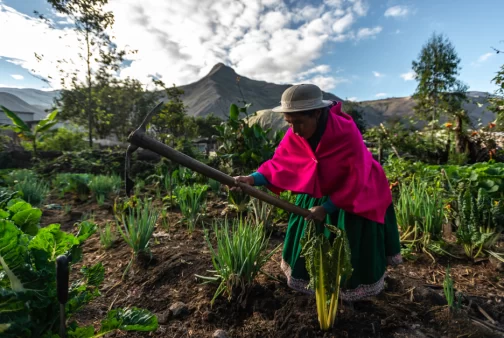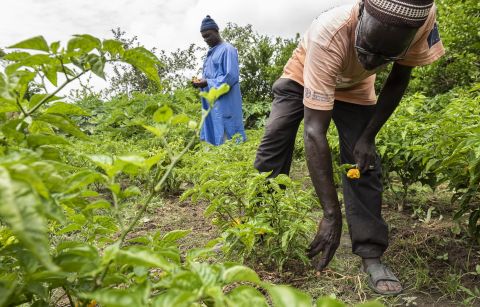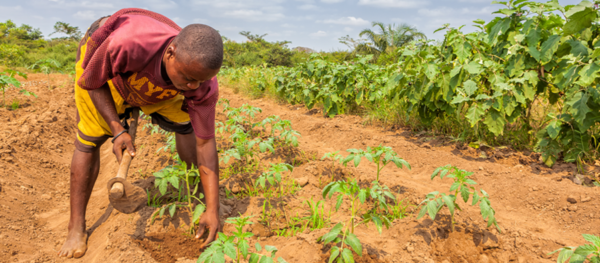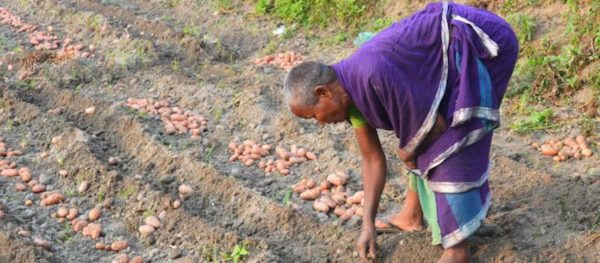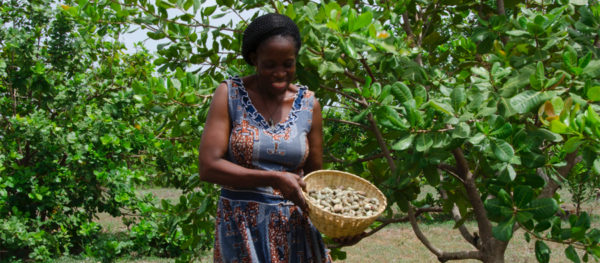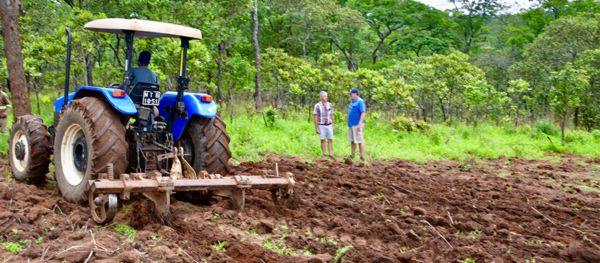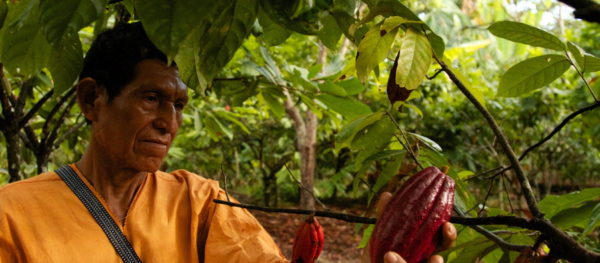Tag: smallholder farmers

Strong Governance Makes Smallholder Farmer Organisations Vital Partners
Africa & Middle East: With proper governance, smallholder farmer organisations can become important partners to funders in combating poverty and climate change.
Read MoreTenure Security Can Empower Women Farmers and Increase Food Security
Latin America & the Caribbean: Increased tenure security for women farmers can lead to more diversified crop production and better food security, according to new research.
Read MoreDriving Climate Action Through Extension System Reforms
Global: Incorporating sustainability in extension systems can help drive climate action in food systems, according to IFPRI researchers.
Read MoreUsing AI for Agriculture: How Farmers in India Could Inspire the World
Asia: An AI for Agriculture initiative in India is already showing promising results for farmers, from planting to harvesting and selling of chilli.
Read MoreBiofortified Staple Crops: Empowering Smallholder Farmers to be Food System Change Agents
Global: Biofortified crops are empowering smallholder farmers to improve nutritional outcomes/
Read MoreHelping the World’s Most Vulnerable Through COVID-19
Global: The COVID-19 pandemic is affecting the world’s most vulnerable, and planning for the post-pandemic recovery is so important for global food security.
Read MoreThree Ways to Make Technology Inclusive for Smallholder Farmers
Europe: Technology can be used to make farming more inclusive, through three critical factors: setting targets, working with local partners and keeping the end-user in mind.
Read MoreStraightforward Soil Solutions for Smallholders
Africa & Middle East: Thomas Ngotho, Senior Consultant for Crops and Agronomy at Business for Development, discusses the ways farmers can maintain the health of their soil.
Read MoreAgricultural Businesses Are the Key to “Decent Work” in Rural Communities
Latin America & the Caribbean: Farming is hard work, but with targeted investments it can also be decent work, says Root Capital.
Read MoreWhat Encourages Smallholders to Adopt New Practices?
Global: A new paper, Growing Prosperity, has analysed what farmers need in order to adopt innovations provided by pioneer firms.
Read More